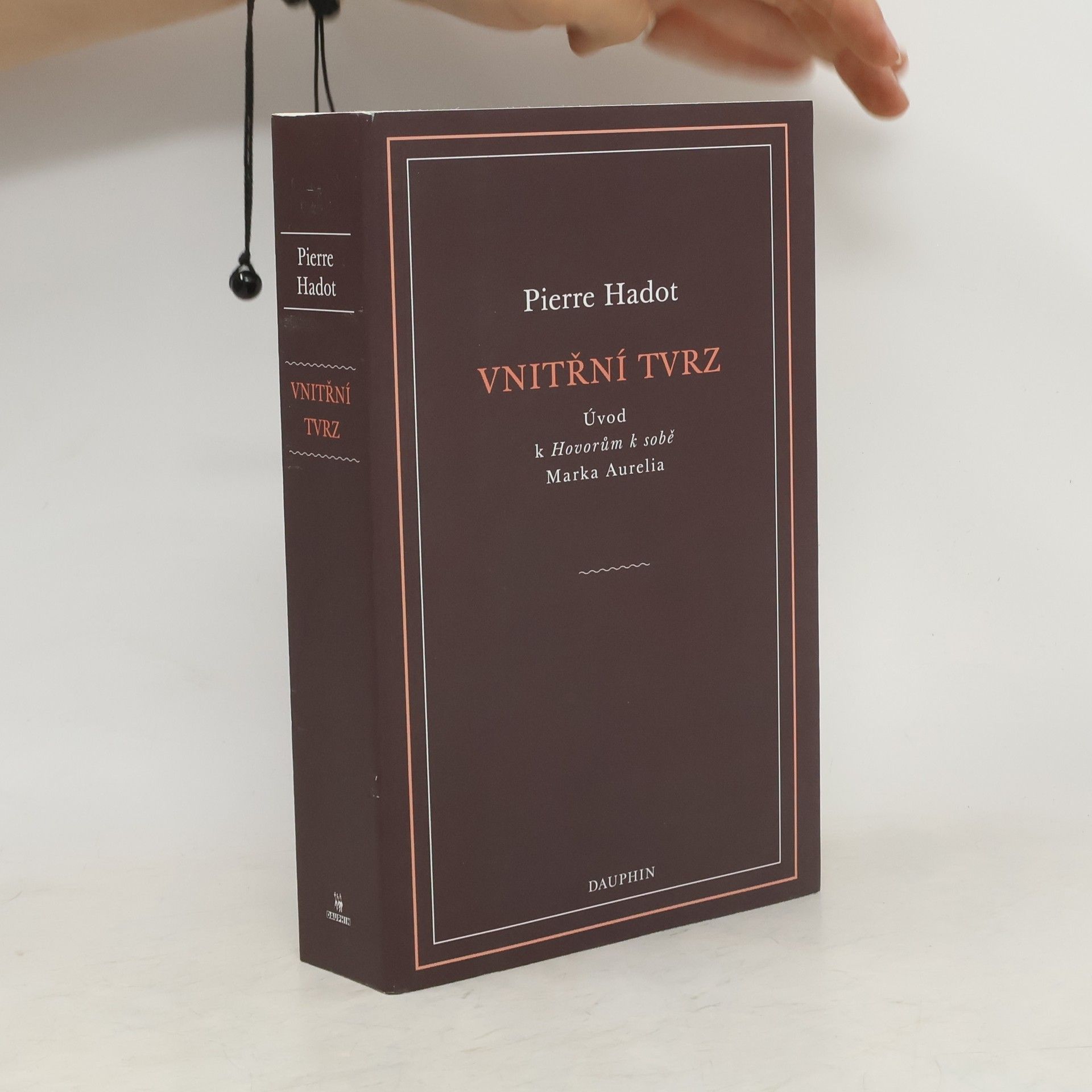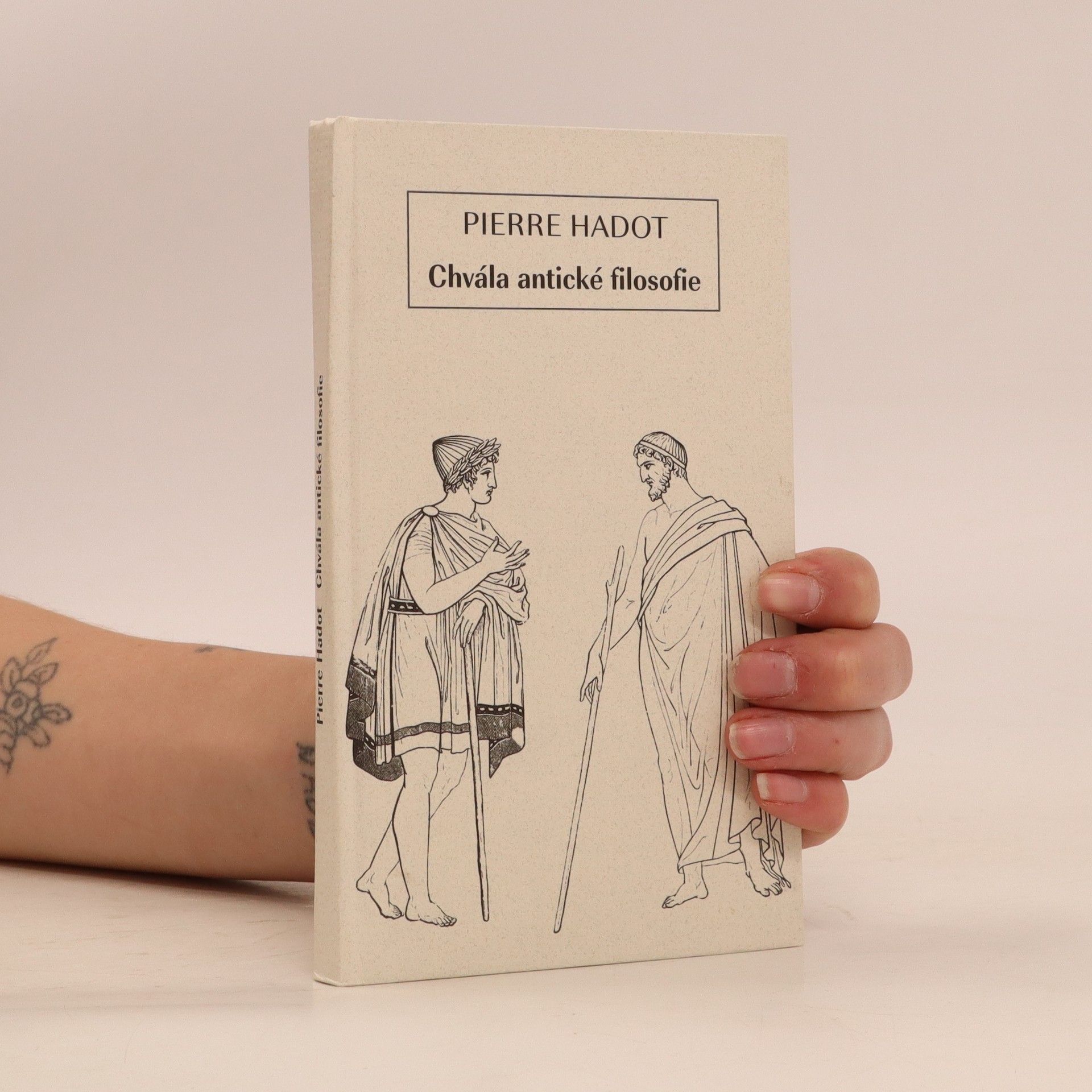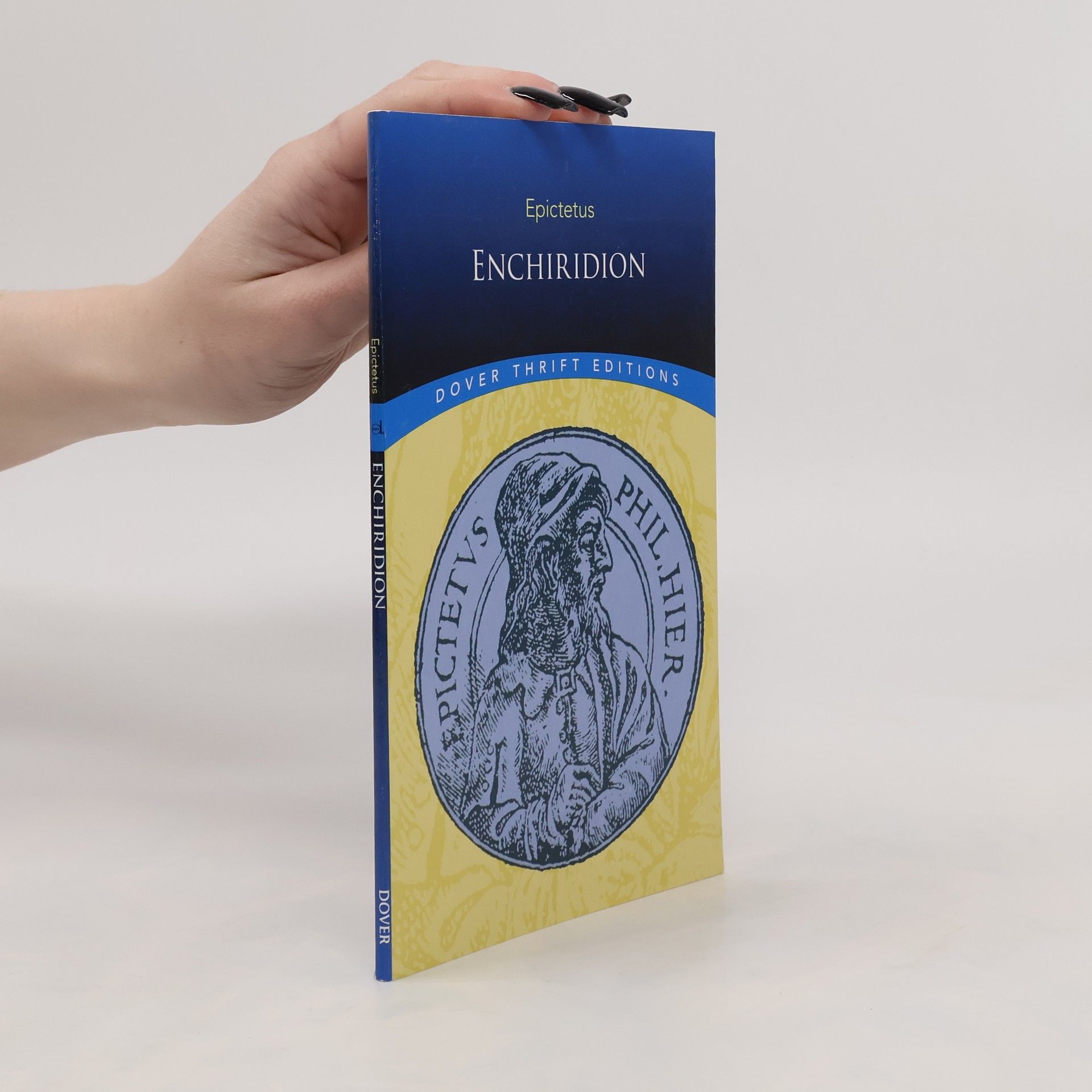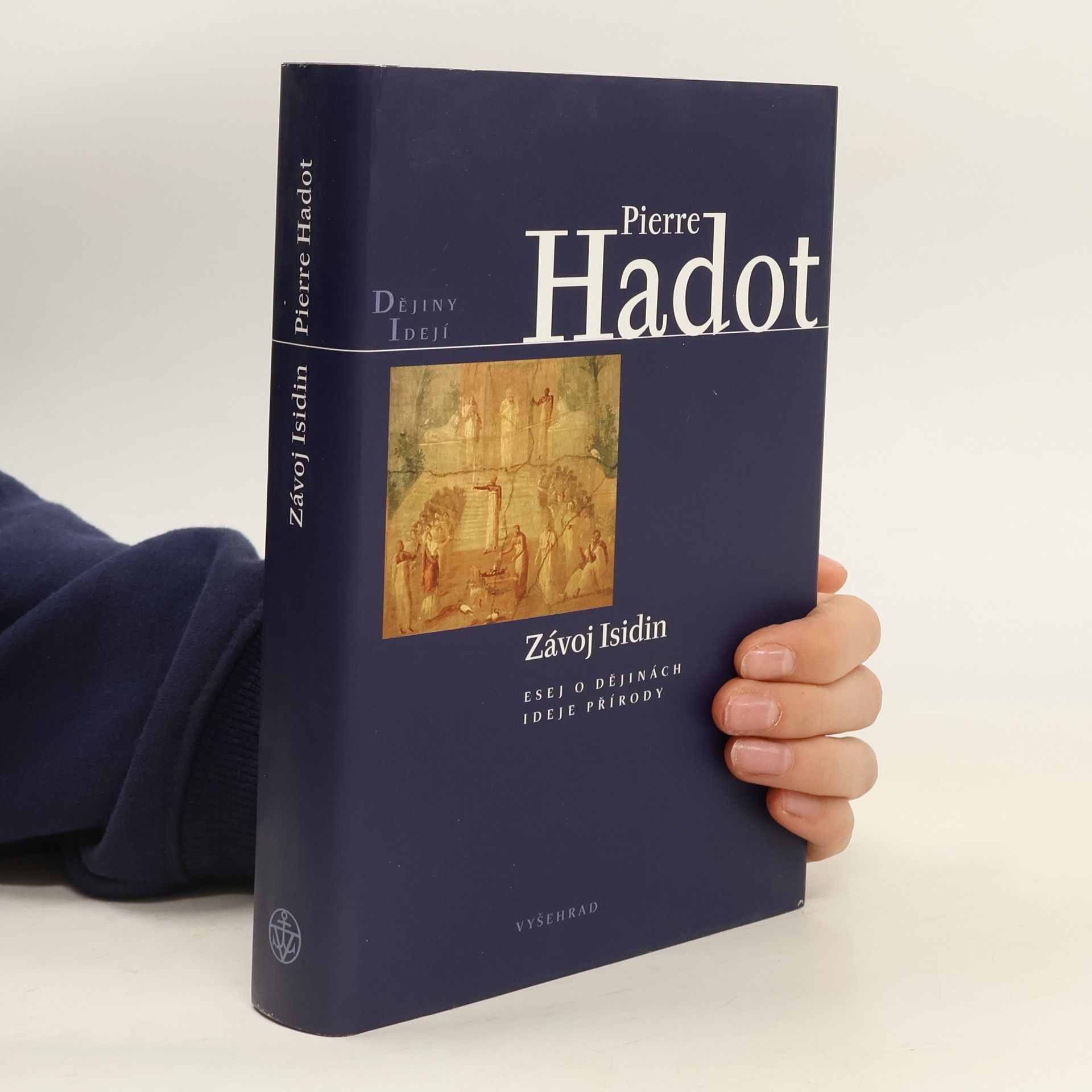Hadotův úvod (Vnitřní tvrz) do Hovorů Marka Aurelia lze číst v jistém smyslu jako úvod do antického stoicismu. Neexistuje nakonec věčný stoicismus, který je napříč časem a prostorem jedním z možných postojů lidského vědomí? Jeho neustálá ozvěna ve filozofických koncepcích dvou tisíciletí tomu napovídá.
Pierre Hadot Book order (chronological)
Pierre Hadot was a French philosopher, historian, and philologist whose work centered on the concept of spiritual exercises and philosophy as a way of life. He specialized in the ancient period, particularly Neoplatonism and Stoicism, emphasizing ancient philosophy as a practical approach to living. His writings, noted for their readability and profound erudition, consistently bridge philosophical ideas with personal experience, literature, and spirituality.



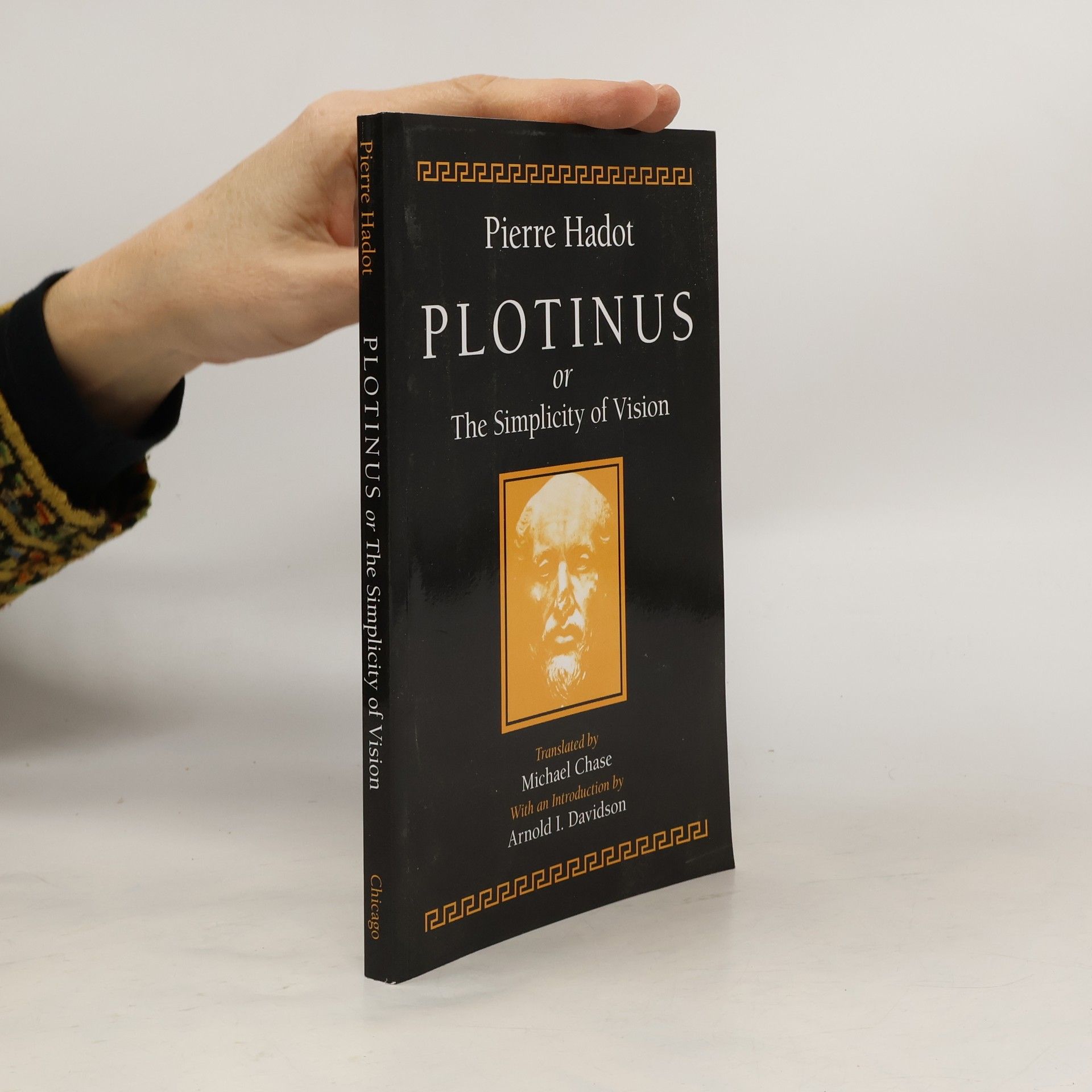



Jeśli zadaniem filozofii jest edukowanie, a nie informowanie, to filozofia jest właśnie edukacją dorosłych. Tym terminem Pierre Hadot przywołuje koncepcję, którą spopularyzował filozofia jako sposób życia. Jako wielki czytelnik filozofów starożytnych, od Sokratesa i Platona po Epikteta, Marka Aureliusza i Plotyna, ale także filozofów nowożytnych i współczesnych, od Montaigne'a i Kartezjusza po Nietzschego i Merleau-Ponty'ego, w tym zbiorze tekstów niedostępnych lub wcześniej niepublikowanych Pierre Hadot ponownie odczytuje historię myśli, aby pomóc czytelnikowi przeorientować swoje życie i na nowo nauczyć się postrzegać świat.
"In Don't Forget to Live, the final book penned before his death in 2010, renowned French philosopher Pierre Hadot focuses our attention on Goethe and the long tradition of spiritual exercises. As Hadot explains, the term "spiritual exercise" has nothing to do with religion as we might assume. Instead, spiritual exercises are acts of the intellect, imagination, or will that are characterized by their purpose. Thanks to these exercises, a person strives to transform how they see the world, the self, and the relationship between the two. The exercises do not work to inform, but to form. Hadot begins his remarkable study of Goethe with the spiritual exercise of concentrating on the present moment. This exercise was dear to Goethe and allows us to experience each moment intensely without being distracted by the weight of the past or the mirage of the future. Hadot then explores another exercise, the view from above, in which we actively take a distance from things so as to help us see them in perspective. He then turns our attention to Goethe's poem "Urworte" in which the focus is on hope, a figure who represents a fundamental attitude we should cultivate. Through Hadot's masterful treatment of these three exercises we clearly grasp Goethe's deep love for life despite its pains and fears, and this deep love serves as a powerful reminder for us to live as well"--
Chvála antické filosofie
- 56 pages
- 2 hours of reading
Francouzský filosof a přední znalec antického myšlení a filosofie Pierre Hadot ve své krátké, ale hutné přednášce postihuje podstatu antické filosofie. Hadot objasňuje, co v řecko-římském světě znamenalo být filosofem, a ukazuje, že "filosofovat" neznamenalo osvojovat si abstraktní, odtažité vědění bez reálného dopadu na život, nýbrž prostřednictvím cvičení rozumu usilovat o vnitřní proměnu sebe sama. Autor dále načrtává, jak a v jakých podobách se toto dědictví antického myšlení po staletí kontinuálně uchovávalo, jakých proměn nabývalo ve středoveku a novověku a jaký smysl a inspiraci v této tradici nalézáme dnes. Kniha přináší inaugurační řeč, kterou Pierre Hadot přednesl 18. února 1983 u příležitosti převzetí katedry dějin helénistického a římského myšlení při College de France.
Handbook of Epictetus also known as Enchiridion written by legendary Greek Stoic philosopher Epictetus is a manual of Stoic ethical advice. Compiled by Arrian, who was a student of Epictetus, this great classic will surely attract a whole new generation of readers. For many, the Handbook of Epictetus is required reading for various courses and curriculums. And for others who simply enjoy reading timeless pieces of classic literature, this gem by Epictetus is highly recommended. Published by Classic Books America and beautifully produced, the Handbook of Epictetus would make an ideal gift and it should be a part of everyone's personal library.
The Present Alone is Our Happiness, Second Edition
- 238 pages
- 9 hours of reading
In this book of brilliantly erudite and precise discussions, which also serves as an introduction to Pierre Hadot's more scholarly works, Hadot explains that for the Ancients, philosophy was not reducible to the building of a theoretical system: it was above all a choice about how to live one's life.
Významná esej francouzského znalce novoplatónské filosofie. „Nikdo ze smrtelníků neodhalí můj závoj“, stálo prý na podstavci sochy bohyně Isidy v Egyptě. Tento romantiky oblíbený motiv, symbolizující odhalení tajemství přírody, spolu se slavným Hérakleitovým výrokem o přírodě, která „se ráda skrývá“, se stává mottem rozsáhlého „eseje“ známého francouzského znalce novoplatónské filosofie. Hadot zde v širokém závěru, sahajícím od literatury přes filosofii, ikonografii a technologii od antiky až po současnost, zabývá pojmem přírody či přirozenosti a jeho vývojem v evropských dějinách. Autor, s nímž se český čtenář mohl už před nějakým časem seznámit prostřednictvím jeho pozoruhodného textu věnovaného Plótinovi, odhaluje ve své nové knize často překvapivé myšlenkové souvislosti. Pierre Hadot v dějinách nachází dva základní postoje k přírodě: „prométheovský“, vedoucí k mechanizaci přírody, a „orfický“, kontemplativně-poetický. Jejich vzájemný vztah či převahu jednoho z nich barvitě ilustruje mnoha příklady z dějin lidského myšlení, umění a jednání. Hadot opět prokazuje, že myšlenkově podnětný text může být i literárně působivý.
In this book of brilliantly erudite and precise discussions, which also serves as an introduction to Pierre Hadot's more scholarly works, Hadot explains that for the Ancients, philosophy was not reducible to the building of a theoretical system: it was above all a choice about how to live one's life.
The Veil of Isis
- 432 pages
- 16 hours of reading
Nearly twenty-five hundred years ago the Greek thinker Heraclitus supposedly uttered the cryptic words Phusis kruptesthai philei. How the aphorism, usually translated as Nature loves to hide, has haunted Western culture ever since is the subject of this engaging study by Pierre Hadot.
in-8, broché, 285 pp., index, bibligraphie. Léger choc en bordure de la couverture. Sinon très bon état.
